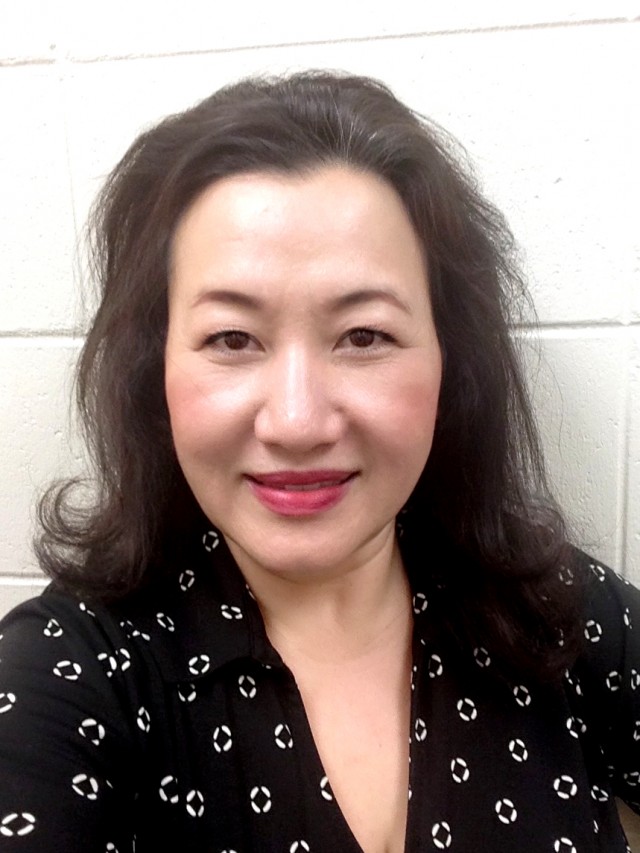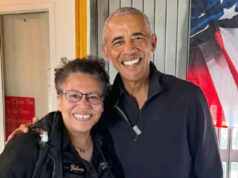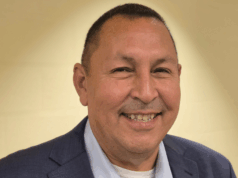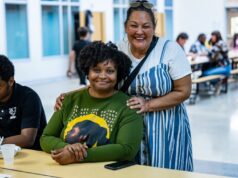Since 1975, after the U.S. pulled out of South Vietnam, thousands of Hmong have moved out of Laos to seek asylum in many European and Western countries including Australia, France, Canada, Germany, and the United States. According to the 2010 U.S. Census, there were about 260,000 Hmong Americans living in the United States. Wisconsin alone has almost 50,000 Hmong, making up about 38 percent of the total Asian population in the state. The Hmong population continues to grow here in Wisconsin and have made tremendous gains in educational attainment, entrepreneurship, medicine, and non-profit work.
To showcase some of their impressive accomplishments, Madison365 is presenting 12 profiles of Wisconsin Hmong professionals in the “1.5 generation.” This is the generation of those born in Laos or Thai refugee camps and transported to America in their childhood. They represent the link between their parents, who lived through the war and are fluent in Hmong, and their children, who were born in America and are fluent in English.
These profiles are not representative of the whole community, as there are Hmong professionals in many other fields than those listed here, including business, human services and politics. While not totally representative, these profiles do share common themes. The parents of these individuals placed a high value on schooling, and often worked multiple jobs to ensure their children could get the best education available. An acute realization of their parents’ sacrifices fueled a drive to achieve. Now, they look to help the next generation, acting as mentors and role models.
This is part 3 in a 3-part series. You can read part 1 here and part 2 here.

Yang Sao Xiong: Giving a voice to the voiceless through research
Assistant Professor in the School of Social Work and Asian American Studies Program at UW-Madison
Yang Sao Xiong knows that Hmong Americans have been ignored, marginalized or misrepresented. Xiong, an assistant professor in the School of Social Work and the Asian American Studies Program at UW-Madison, wants to restore the voice of Hmong Americans and other marginalized groups through his teaching, research, and activism.
“All of the assignments that I give to my students are about giving them or other people voices,” Xiong said. “Whether I’m teaching about social movements or critical race perspectives, a lot of my passion is driven by my commitment to give voice to people, especially marginalized groups of people.”
Xiong, the first tenure-track faculty in Hmong American studies in the world, has seen plenty of research showing that Hmong Americans have long been marginalized and left without political power “in almost every social institution I could name, from schools, to social institutions to courts to the police,” he said.
It isn’t that Hmong Americans stay silent in the face of marginalization. To the contrary, Xiong teaches his students about the collective social actions they’ve taken to combat those struggles. He wants his students to understand that “Hmong are in fact a highly, highly engaged, active group. They are not just a passive society; they have been active in many ways, politically economically and socially.”
But the history books don’t always tell this story, nor do they include the voices of ordinary Hmong men and women.
“To me, teaching about Hmong American studies involves reconstructing Hmong history and analyzing their lived experiences in a way that is more accurate and more critical than has been done in the past,” Xiong said.
Xiong attributes much of his success to the mentors and people who were there for him — including his wife, parents and teachers — every step of the way, from elementary school through graduate school. Now he plays the role of mentor to undergraduate and graduate students on campus. He also serves as an advisor to the Wisconsin Hmong College Coalition and a consultant to community organizations and agencies throughout the state. The U.S. Commission on Civil Rights has appointed Xiong as a member of the Wisconsin State Advisory Committee.
“As an educator, that’s my passion,” Xiong said. “I want to train the next generation of students of American society to think critically and act competently to respect one another and to learn about people’s histories.”

Chue Lor: Motivated by past and future
Maintenance Supervisor, Madison Metro
When Chue Lor was in his early twenties, he was working in a factory making fuel hoses for gas stations. Every day he came in to work the second shift, did the same repetitive tasks, looked around at his co-workers and asked himself “Is this what I want to do until I’m 60?”
The question became more and more pressing as he considered his past and his future.
His past was full of parental sacrifice. Lor was under four when his parents, his older brother, and his grandmother made the dangerous journey to escape Laos. His father hired two Laotians to guide them to Vietnam en route to refugee camps in Thailand. The family traveled at night and laid low during the day to avoid detection. One night, the sound of the group making their way through a rice paddy attracted the attention of the Laotian army.
The army walked right up to the edge of the paddy, flashlights searching for Lor and his family. It was, Lor’s father said, the scariest moment in the journey. The two guides were terrified, and took off, fearing they would be caught and killed. Lor’s father knew that without the guides, the family would be lost.
“My dad ran after them and grabbed the hand of one of the guys and said, “Look, you can’t leave me and my family out here; we have no idea where we are. You can’t leave us behind here; you told us you were going to take us across the river and get us to safety,’” Lor said.
The guide argued, but Lor’s dad simply would not release his iron grip on the guide’s hand. The guide had to give in, and eventually both guides were persuaded to return to the family. They all hid in the rice paddies until morning, and continued on the next day.
“My dad did not go pushing us through the war, pushing us through the rice paddies, walking, traveling late at night so we wouldn’t get caught, crossing the river: my dad didn’t sacrifice all that for me to stay and work at factory job for the rest of my life,” Lor said.
Looking at his future, with a son on the way, Lor wanted to be able to give his kids a better life than he had; a life where he could afford to take his kids out to eat at a Red Robin or Outback Steakhouse on occasion, a luxury his parents could never afford.
The past and the future told him he had to leave his job at the factory, and he knew his next step was education.
Education did not come easy. Working separate shifts so they could take care of their kids, Lor and his wife were ships in the night, only able to spend a few hours with each other every day, as his wife went to work at Walmart when he came home from after a long day of school and work.
But the sacrifice paid off. Always interested in cars, Lor went to Northeast Wisconsin Technical College in Green Bay, and earned a national scholarship for excellent automotive students. A year after college, he was already a full mechanic, and the top-producing and top-grossing mechanic at his company. Later, he worked as a service director at an automotive dealer.
Lor is now a Maintenance Supervisor at Metro Transit in Madison and oversees mechanics and maintains 214 buses, 17 paratransit buses and 27 support vehicles. He finds the day-to-day challenges of maintaining and fixing this fleet simple and rewarding, but there are greater challenges.
Lor serves on the Culture Engagement and Equitable Workforce Committees at Metro. He jumped at the chance to work on the Equitable Workforce Committee, which tries to find the source of racial, gender and age employment disparities by looking at the recruitment, education, and hiring processes. He had identified lack of diversity at Metro as a problem when he was first hired.
“I said ‘Wow.’ Looking at the workface, with over 300-some drivers, and the majority of them are Caucasian,” Lor said. “Metro employs so many employees, why are we not getting a diverse group of people to work here?”
Lor was initially hesitant to join the Culture Engagement Committee (which deals with workplace culture, not social culture), because he didn’t feel qualified as a relative newcomer. He then realized as one of two people of color in management, “If I don’t join, I won’t have a voice to help make the changes we should for Metro.”

Maiko Thao: Out of the comfort zone
Counselor at Preble High School, Green Bay, WI
One of Maiko Katie Thao’s earliest memories was of her father lifting her on his shoulders. A common enough experience, but in Thao’s case, it was in order to flee through the jungles of Laos and Thailand. The journey was so intense, and so dirty, that she can remember her father using a machete to scrape off the thick layer of mud caked on her pants.
When you consider the chaos of her early childhood, it makes sense that Thao’s life philosophy is to take life as it comes. Thao doesn’t believe this perspective is unique to her, but rather common among those who had to deal with the war in Laos and its aftermath.
“I think people in my age group were brought up with that kind of attitude, that sometimes you’re thrown into situations that you have no control, and you have to make do and do the best you can,” Thao said.
This philosophy served her well throughout the next transitions of her life. When her family arrived in America, they were placed in Denver, Colorado, in a community with few other Hmong refugees.
“It was either sink or swim, there was no other Hmong person there that could help us learn the language,” she said in a Wisconsin Public Radio interview.
When she was 17, she entered an arranged marriage that necessitated a quick move to Wisconsin. She maintained her attitude of flexibility and openness to whatever life brought her.
She believes this attitude, stemming from her unique life experiences, has been essential to her success — and she wants to share that wisdom with others. She obtained her Master’s, and now works as a high school counselor in Green Bay. She tries to encourage teens to get outside their comfort zones. She urges teens who are afraid of taking difficult classes to accept that being challenged is a part of life.
“I think too many young people have an expectation, ‘It has to be this way or else,’” Thao said. “We are going to encounter situations that we’re going to be uncomfortable with.”
Thao knows challenges come for everyone, and wants to enable her students to cope with those situations.

Maly Yang: Social work as a way of life
Social worker for Milwaukee Public School District
When Maly Yang was 14, she overheard her mother and father talking about the budget. They had been in America for less than a year, and her mother didn’t see how the family of eight was going to get by on the $800 a month. Overwhelmed, her mother mumbled that there wasn’t enough money.
Yang heard this and was stressed. She thought, “I wish I could do something!”
So Yang did something. She started cleaning houses on the weekends, then found a job delivering newspapers.
Responsibility wasn’t new to her. In the refugee camps in Thailand, she helped her parents buy and sell fruit, vegetables and meat at the marketplace. After arriving in the US at age 14, she protectively looked after her brother and sister, making sure they got on the right bus and arrived at school on time. She accompanied her parents and relatives to the doctor and volunteered to act as an interpreter.
So when she found herself in a 5th grade American classroom, she didn’t exactly fit in with her classmates.
“I didn’t even like to be with the kids in the school. I didn’t like to go to recess,” said Yang. “I felt like I was older than the kids.”
In class, she would daydream about what her future could be like, but her daydreams were anything but fanciful. She wasn’t searching for a quality career or aching for Prince Charming — she knew she needed a job that could earn money, and made plans accordingly.
This led her to major in computer engineering, but quickly realized the subject wasn’t for her. She switched to accounting, but in her junior year found that keeping up with accounting theory in her second language was too difficult. When she asked a professor for help, he told her “You can’t go out there and be a business person. You know, in the real world, if you can’t speak English well, you can’t compete.” She despaired that she would be a failure.
Her husband told her, “You should try one social work class and see if you like it.”
She loved it. As it turned out, social work was what she’d been doing her whole life.
Now she works with K-12 Asian populations in the Milwaukee Public School district, and much of what she does — providing counseling to students who have social, emotional and academic needs, providing home visits to parents of truant children and networking with community organizations to find resources for students and families — is in the same vein of logistical help she gave her own family in years past. She sometimes shares her personal story with these kids to let them know that she achieved her dreams of having a better life.
She only wishes there were more of herself, and other resources, to give. There aren’t many people in the system who have competent knowledge of Asian culture: she is one of a few bilingual social workers working with this population.
“There are more than ten holes in a balloon and all I have is ten fingers. So I put all my fingers into those holes, but there are still holes leaking,” Yang said. “I wish I could have many, many fingers.”










